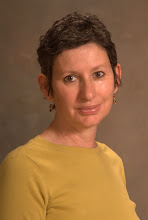Armstrong's theme, which he hints at in the book title, is that he succeeded in the grueling Tour de France partly by drawing on the lessons he learned in his fight against cancer. Armstrong's disease was quite advanced when it was discovered, having reached his brain and other vital organs, and his survival is indeed miraculous. He contends that his illness changed him both psychologically and physically, which worked to his advantage as an athlete. He notes that cancer helped him grow into a more mature, less cocky cyclist. Physically, Armstrong said that his post-cancer physique was leaner, which allowed him to attack the hill-climbing components of the sport more efficiently since he was carrying less bulk.
Although Armstrong goes through a period of aimlessness following his treatment, which he refers to as "survivorship,'' he mostly maintains a positive attitude throughout his cancer ordeal. What is interesting, however, is how he characterized the mental components of illness and recovery. He writes: "I believed...in the doctors and the medicine and the surgeries.... I believed in the hard currency of... intelligence and...research." But Armstrong also noted that he "believed in belief, for its own own shining sake."
He decided that belief in something was preferable to belief in nothing and eventually arrived at the following conclusion: "I didn't fully see, until the cancer, how we fight every day against the creeping negatives of the world, how we struggle daily against the slow lapping of cynicism. Dis-spiritedness and disappointment, these were the real perils of life, not some sudden illness or cataclysmic millennium doomsday."
Dr. Bernie Siegel has also written about illness and positive thinking in several books, including his bestseller, Love, Medicine and Miracles. Dr. Siegel was not really on my radar, but another woman with breast cancer told me that she found his book helpful. So I listened to an Internet radio broadcast in which he focused on breast cancer. For those who are interested, here is the link: http://www.blogtalkradio.com/breastcancerwellness/2008/02/19/Love-medicine-and-miracles-for-breast-cancer-survivors
In short, Dr. Siegel advises patients to empower themselves in many ways: to be proactive in their treatments and to take charge of their lives. He teaches people to use positive messages, imagery, and humor to aid in healing. Dr. Siegel also believes that many of us carry emotional baggage from our childhoods with us, which can lead to illnesses.
While I agree that a mind-body connection exists (anyone who has blushed with embarrassment knows this to be true), Dr. Siegel and I part ways at the idea that one's unresolved emotional issues can morph into cancer cells. Many theories exist to explain the growth of cancer cells, including exposure to toxins, hormonal imbalances, genetic pre-dispositions, and poor diet. Scientists don't fully understand all the underlying causes, but I'm skeptical of the theory that holding a grudge against one's parents is a cancer catalyst. A similar theory, which some authors have floated, is that women bring on breast cancer by being passive and "bottling-up" their emotions in their chests. This idea is ridiculous, and only casts blame on those who are unlucky enough to develop a lump in their breast.
The truth is that well-balanced, fully expressive, upbeat people get sick, too. One of Lance Armstrong's physicians, Dr. Einhorn, spoke to this point in the following observation: "I've seen wonderful, positive people not make it in the end. And some of the most miserable, ornery people survive to resume their ornery lives."
The trick of illness is not to be emotionally defeated by it, but to learn how to use its lessons to a later advantage. Lance Armstrong took the idea of the mind-body connection to the extreme and conquered the Tour de France. He also started a major cancer fundraising organization. But small efforts are good, too. This weekend, I went to Bikram Yoga, a 90-minute yoga class held in a room heated to 105 degrees. Yes, you read that right. It was definitely hot, but I persevered and felt pretty good at the end. I also start radiation in a few days. At the beginning of this detour, I might have had some trepidation about being radiated, but not now. I've vanquished chemo and survived a session of Bikram yoga. How bad can radiation be?





1 comment:
radiation can be lovely! for 7 minutes you lie under a machine that beams invisible healing rays at you. you can't feel them, but they're healing you. you meditate. you relax. you breathe slowly so as not to stir. it's peaceful. maybe you sleep and briefly dream. everyone says to go wherever's closest...but you might consider choosing a clinic because it's airy and pretty and nice. hope your experience is really good...a positive end to an arduous treatment.
ps--here's a nice tip--they told me the only deodorant i could use during radiation is Tom's (because it contains no metals), but if Tom's doesn't work for you, you can dust your armpit with a mixture of 2/3 cornstarch and 1/3 baking soda (it will cling to the Tom's), and that DOES work.
Post a Comment